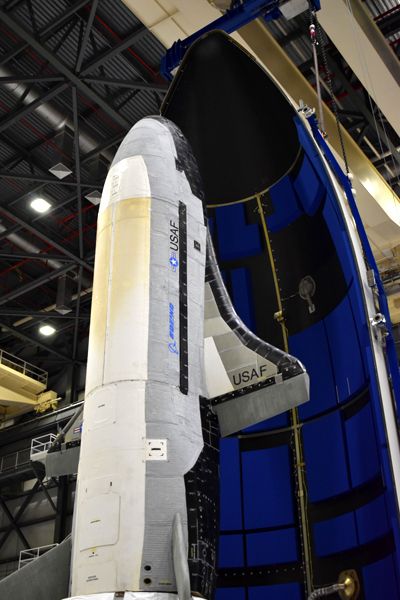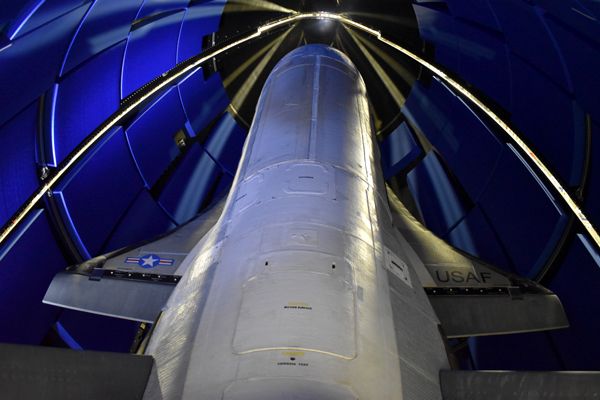
Boeing
Next X-37B Orbital Test Vehicle Scheduled to Launch (Press Release)
WASHINGTON (AFNS) -- The Department of the Air Force Rapid Capabilities Office, in partnership with the U.S. Space Force, is scheduled to launch the sixth mission of the X-37B Orbital Test Vehicle (OTV-6) on May 16 from Cape Canaveral Air Force Station, Florida.
The Department of the Air Force continues to push the flight envelope for the X-37B, and will build upon its growing collaboration with experiment partners with its sixth mission.
“In today’s age of electrons, space systems track storms, locate stranded motorists, timestamp credit card transactions, and monitor treaty compliance,” said Secretary of the Air Force Barbara Barrett. “Demonstrating the department’s innovation, this X-37B mission will host more experiments than any prior missions. This launch also demonstrates the department’s collaboration that pushes the boundaries for reusable space systems.”
The ability to test new systems in space and return them to Earth is unique to the X-37B program and enables the U.S. to more efficiently and effectively develop space capabilities necessary to maintain superiority in the space domain.
"The X-37B team continues to exemplify the kind of lean, agile and forward-leaning technology development we need as a nation in the space domain," said U.S. Space Force Chief of Space Operations, Gen. John "Jay" Raymond. "Each launch represents a significant milestone and advancement in terms of how we build, test, and deploy space capabilities in a rapid and responsive manner."
The X-37B remains a Department of the Air Force asset; however, the U.S. Space Force is responsible for the launch, on-orbit operations, and landing.
"This launch is a prime example of integrated operations between the Air Force, Space Force, and government-industry partnerships," said Air Force Chief of Staff Gen. David Goldfein. "The X-37B continues to break barriers in advancing reusable space vehicle technologies and is a significant investment in advancing future space capabilities."
This will be the first X-37B mission to use a service module to host experiments. The service module is an attachment to the aft of the vehicle that allows additional experimental payload capability to be carried to orbit.
"This sixth mission is a big step for the X-37B program," said Mr. Randy Walden, Director and Program Executive Officer for the Department of the Air Force Rapid Capabilities Office. "This will be the first X-37B mission to use a service module to host experiments. The incorporation of a service module on this mission enables us to continue to expand the capabilities of the spacecraft and host more experiments than any of the previous missions."
The mission will deploy the FalconSat-8, a small satellite developed by the U.S. Air Force Academy and sponsored by the Air Force Research Laboratory to conduct several experiments on orbit. The FalconSat-8 is an educational platform that will carry five experimental payloads for USAFA to operate. In addition, two National Aeronautics and Space Administration experiments will be included to study the results of radiation and other space effects on a materials sample plate and seeds used to grow food. Finally, the U.S. Naval Research Laboratory, will transform solar power into radio frequency microwave energy which could then be transmitted to the ground.
"We are excited to return the X-37B to space and conduct numerous on-orbit experiments for both the Air Force and its mission partners," said Lt. Col. Jonathan Keen, the X-37B program manager.
The X-37B program completed its fifth mission in October 2019, landing after 780 days on orbit, extending the total number of days spent on orbit for the spacecraft to 2,865 - or seven years and 10 months.
Source: United States Space Force
****

Boeing

No comments:
Post a Comment